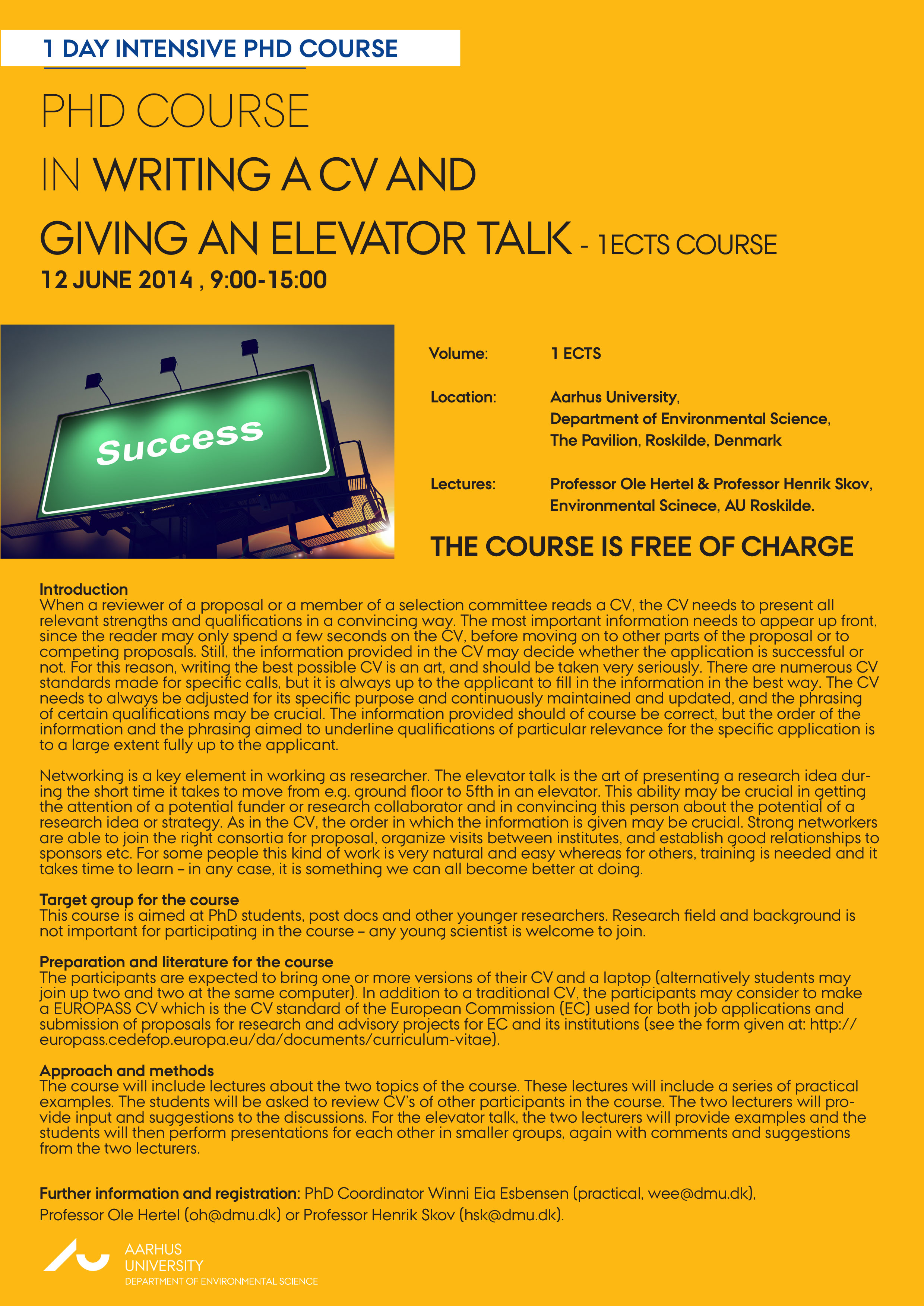PhD course in writing a CV and giving an elevator talk
1 ECTS course, - the course is FREE OF CHARGE
Info about event
Time
Location
ENVS, AU Roskilde, The Pavilion
Organizer

Introduction
When a reviewer of a proposal or a member of a selection committee reads a CV, the CV needs to present all relevant strengths and qualifications in a convincing way. The most important information needs to appear up front, since the reader may only spend a few seconds on the CV, before moving on to other parts of the proposal or to competing proposals. Still, the information provided in the CV may decide whether the application is successful or not. For this reason, writing the best possible CV is an art, and should be taken very seriously. There are numerous CV standards made for specific calls, but it is always up to the applicant to fill in the information in the best way. The CV needs to always be adjusted for its specific purpose and continuously maintained and updated, and the phrasing of certain qualifications may be crucial. The information provided should of course be correct, but the order of the information and the phrasing aimed to underline qualifications of particular relevance for the specific application is to a large extent fully up to the applicant.
Networking is a key element in working as researcher. The elevator talk is the art of presenting a research idea during the short time it takes to move from e.g. ground floor to 5fth in an elevator. This ability may be crucial in getting the attention of a potential funder or research collaborator and in convincing this person about the potential of a research idea or strategy. As in the CV, the order in which the information is given may be crucial. Strong networkers are able to join the right consortia for proposal, organize visits between institutes, and establish good relationships to sponsors etc. For some people this kind of work is very natural and easy whereas for others, training is needed and it takes time to learn – in any case, it is something we can all become better at doing.
Target group for the course
This course is aimed at PhD students, post docs and other younger researchers. Research field and background is not important for participating in the course – any young scientist is welcome to join.
Preparation and literature for the course
The participants are expected to bring one or more versions of their CV and a laptop (alternatively students may join up two and two at the same computer). In addition to a traditional CV, the participants may consider to make a EUROPASS CV which is the CV standard of the European Commission (EC) used for both job applications and submission of proposals for research and advisory projects for EC and its institutions (see the form given at: europass.cedefop.europa.eu/da/documents/curriculum-vitae).
Approach and methods
The course will include lectures about the two topics of the course. These lectures will include a series of practical examples. The students will be asked to review CV’s of other participants in the course. The two lecturers will provide input and suggestions to the discussions. For the elevator talk, the two lecturers will provide examples and the students will then perform presentations for each other in smaller groups, again with comments and suggestions from the two lecturers.
Further information and registration:
PhD Coordinator Winni Eia Esbensen (practical, wee@dmu.dk), Professor Ole Hertel (oh@dmu.dk) or Professor Henrik Skov (hsk@dmu.dk).
